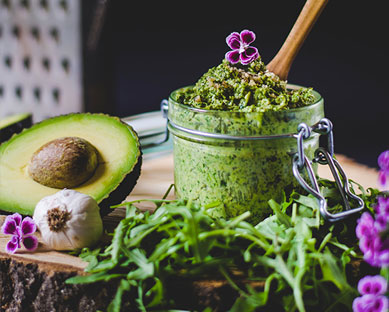
Answered Questions
Below you will find answers to some commonly asked questions to give you more information about living a healthier lifestyle by going fully plant-based.
If you have a question that you can’t find the answer to, please use the contact us page.
NOTE: Clicking on the question will reveal the answer.
A whole food plant-based diet is centred on fuelling your body on whole, unrefined, and minimally processed foods. This includes whole grains, legumes, fruits, vegetables, nuts and seeds. All animal products including meat, dairy, eggs and processed foods are excluded.
A plant-based diet has been scientifically proven to not only prevent but also reverse the most common chronic diseases including heart disease, type 2 diabetes etc.
Protein is important for maintaining muscle and bone mass, for keeping the immune system strong, and preventing fatigue. By eating WFPB you get the quality of protein your body needs, they are low in fat and sodium and high in fiber, minerals and vitamins without cholesterol.
According to The World Health Organization (WHO) a healthy adult requires 0.8g per kilogram of body weight per day of protein.
Some Plant protein sources include: Legumes (beans, chickpea, peas, lentils) Soy products, nuts and seeds.
Some of the benefits include:
High in nutrients and naturally low in calories.
The best source of healthy carbohydrates and fat.
High in vitamins and minerals.
High in fiber.
Low in sodium.
Anti-inflammatory.
Most ethical and compassionate for the animals.
Most sustainable and eco-friendly for the Earth.
It is recommended that you take Vitamin D and B12 supplements if you are on this diet.
The only way to get Vitamin D naturally is by exposing your body to sunshine. If you don’t get adequate exposure to sunlight then a supplement can help.
Vitamin B12 is only found naturally in dirt as well as animal products. Animals don’t make B12, they get it from the dirt they eat. A regular dose of Vitamin B12 is crucial if adopting a plant-based diet as a deficiency can be devastating.
B12 supplements are shown to be safe for people on a plant-based diet to take.
Get your B12 levels checked annually.
There is a variety of foods to choose from and a number of your meals can be veganised. For example, if you love scrambled eggs it can easily be replaced with scrambled Tofu.
There have been misconceptions over the years about carbohydrates been bad for you. There are three different kinds of carbohydrates found in food: sugar, starch and fibre. Starch is found in foods that come from plants, it keeps you fuller for longer and provides a slow and steady release of energy.
You hear on a regular basis how expensive it is to eat healthy, adopting a WFPB lifestyle can be achieved on a budget as fresh produce and grains are less expensive than meat. Make a habit of buying fresh produce in season and also include frozen and canned. Always go for the option of canned in water.
Plant foods are the most abundant sources of nutrition. There are 13 essential vitamins. Eleven are made in abundance by plants. Vitamin D and B12 are not produced by plants and can be supplemented.
A plant-based diet has been scientifically proven to not only prevent but also reverse the most common chronic diseases including heart disease, high blood pressure and type 2 diabetes.
Please contact us for further details.
Please contact us for further details.
